There are two kinds of stress, good and bad stress. Does this mean there is an appropriate type of stress and an unhealthy, detrimental type? Where do you draw the line between good anxiety and bad stress, and how can it affect our mental health?

1) Not all stress is bad stress.
Is all stress a bad thing? The answer is no. Starting a new job, a new relationship, or moving into a new home can be stressful. However, these things are often classed as “good stress.”
Small amounts of stress are actually good for us and keep us motivated and moving forward. It can make us feel “alive.”
It’s all about what you do when faced with a stressful situation, either good (starting a new relationship or job) or bad (breakdown of a relationship or financial problems).

It may feel like an anvil hanging over your head, but that looming deadline stressing you out at work may actually be beneficial for your brain, according to new research. The study found that low to moderate levels of stress can help individuals develop resilience and reduce the risk of developing mental health disorders, like depression and antisocial behaviors. Low to moderate stress can also help individuals to cope with future stressful encounters.
sciencedaily.com
2) It is vital to immediately recognise bad stress.
How do you know if your stress is bad? Bad stress can occur due to several things, such as significant disappointment, failure to make the team or pass an exam, or even a collapse of a marriage or relationship. Generally, these things are very stressful, which is normal.
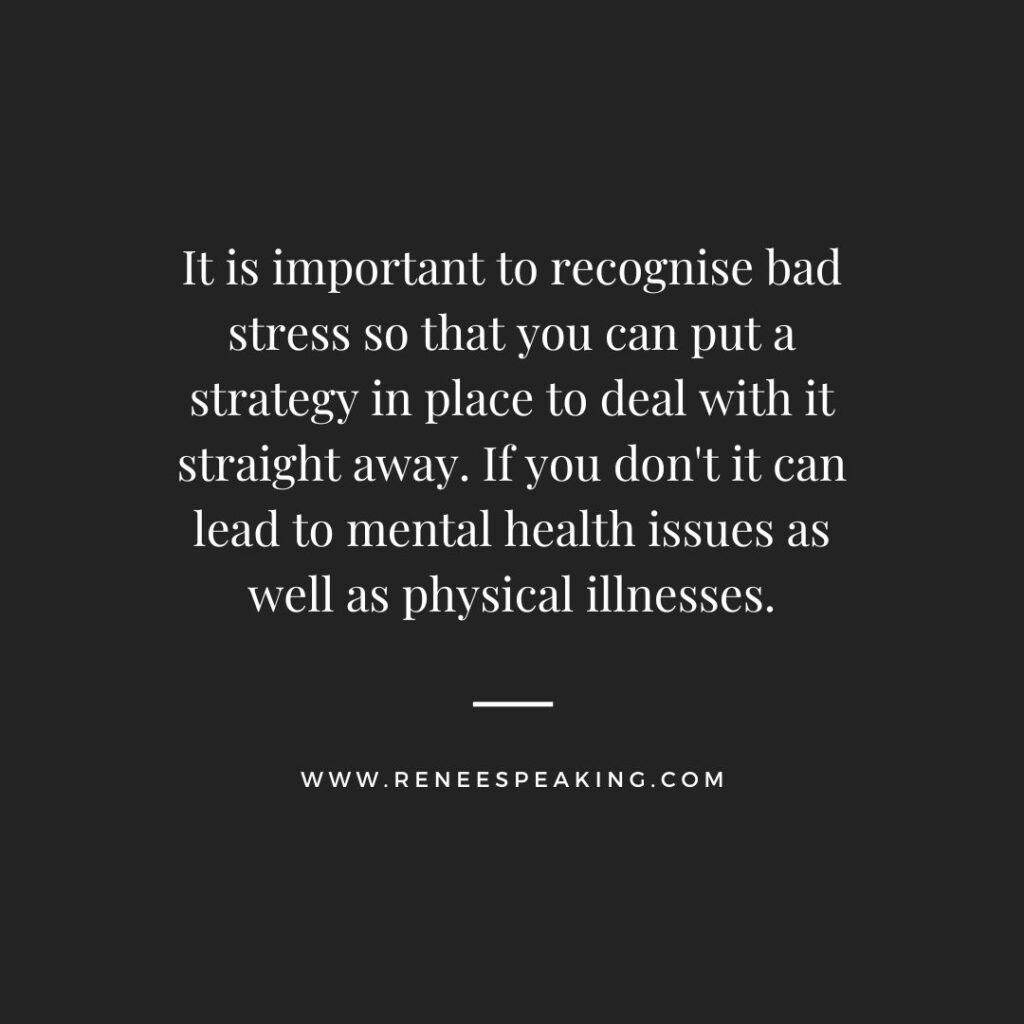
Good stress is the kind that motivates us, gets us out of bed in the morning and helps us achieve our goals. It gives us a feeling of excitement and anticipation.
Bad stress, however, is the kind that wears you out, leaves you exhausted and is harmful to your health. Bad stress, or distress, can lead to anxiety, confusion and leave you unable to think clearly. It can also result in depression and addictions — even obesity.
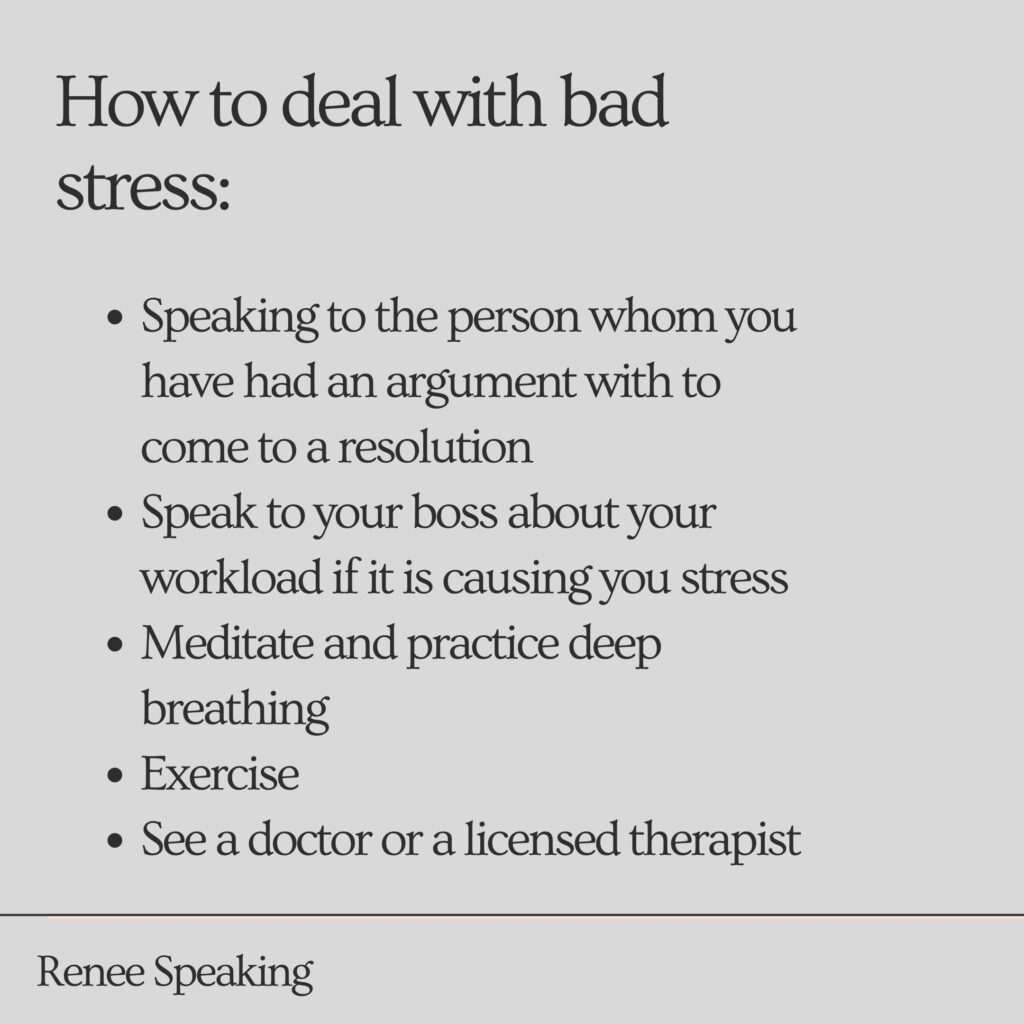

3) When faced with deciding how to handle these stresses, do not avoid decision-making.
When we do not try and resolve the destructive stress and pretend it doesn’t exist, we cause ourselves harm mentally. It can lead to anxiety and then depression. The build-up of pressure in our bodies can also lead to physical manifestations like headaches and muscle pain, which can stop you from living your life to its fullest. Stress will occur anytime; however, if you are brave enough to deal with it timely, it doesn’t have to ruin your life.
Don’t procrastinate and avoid decision-making. It will only make your mental health worse. Instead, process the stress and let it work to your advantage. Start to take control of the pressure and deal positively with it.
It can be very harmful when bad stress is prolonged and not addressed in a timely way.
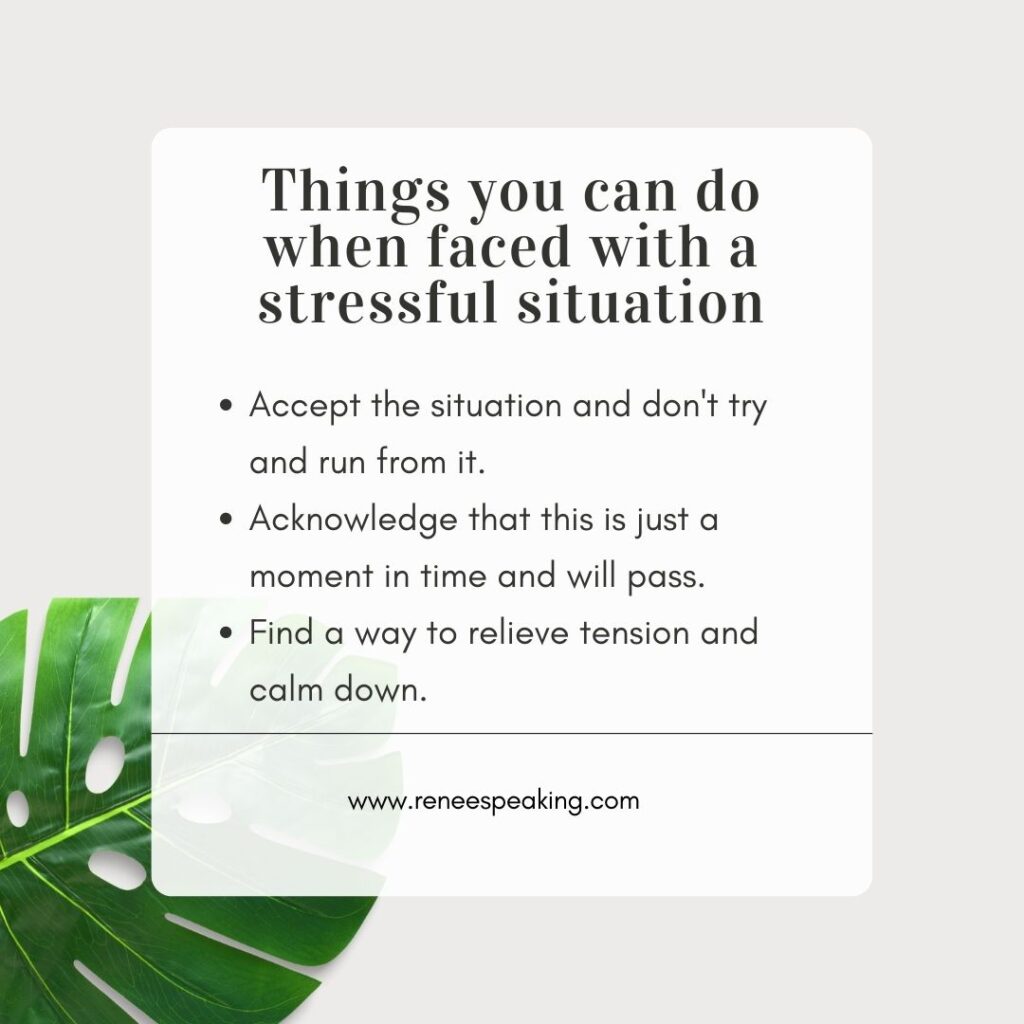
4) Stress hormones help us fight the threat.
When you are stressed your body releases stress hormones. One hormone is adrenaline. This helps you handle the immediate stress. It boosts your energy so that you can deal with the threat straight away. We can tend to get an adrenaline rush.
These hormones help your body prepare to fight or flee to safety: your heart pounds, blood pressure rises, and more of your blood is sent to your brain and muscles; your breath quickens to get more oxygen into your blood; and your body releases sugars and fats into the blood for energy.
Harvard Health
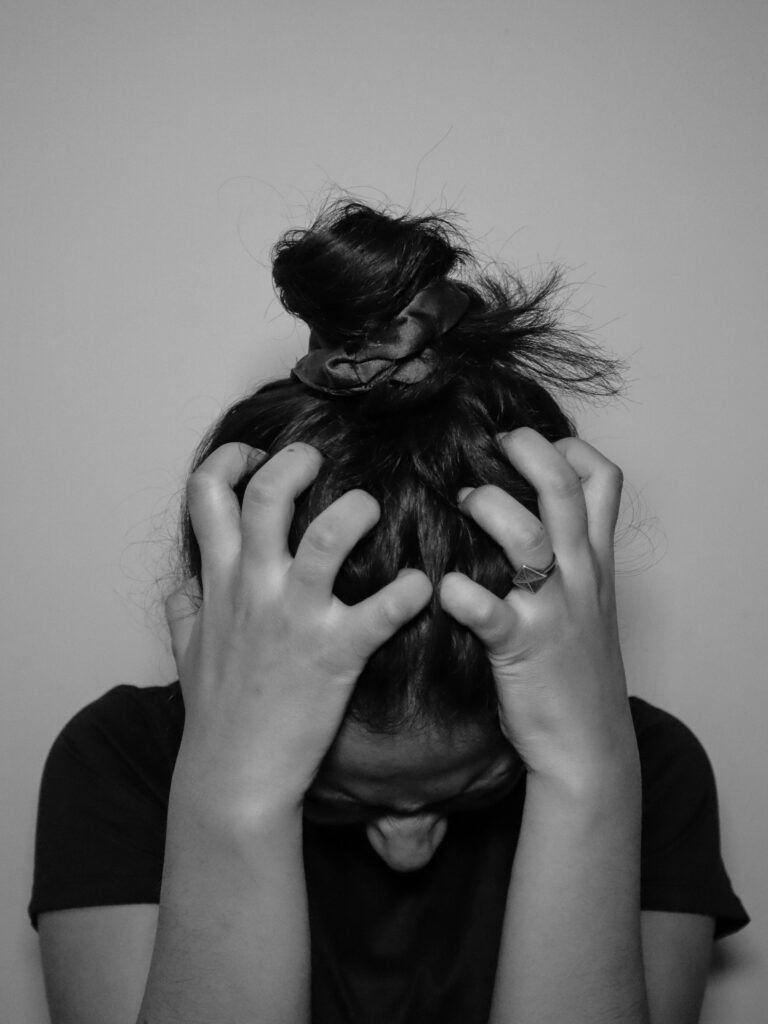
5) To deal with stress, try a stress relieving activity.
I love to dance and feel that it releases so much tension, and I enjoy it. It is hard for me to feel anxiety or stress and also dance at the same time! Dancing has always been my lifesaver in stressful situations.
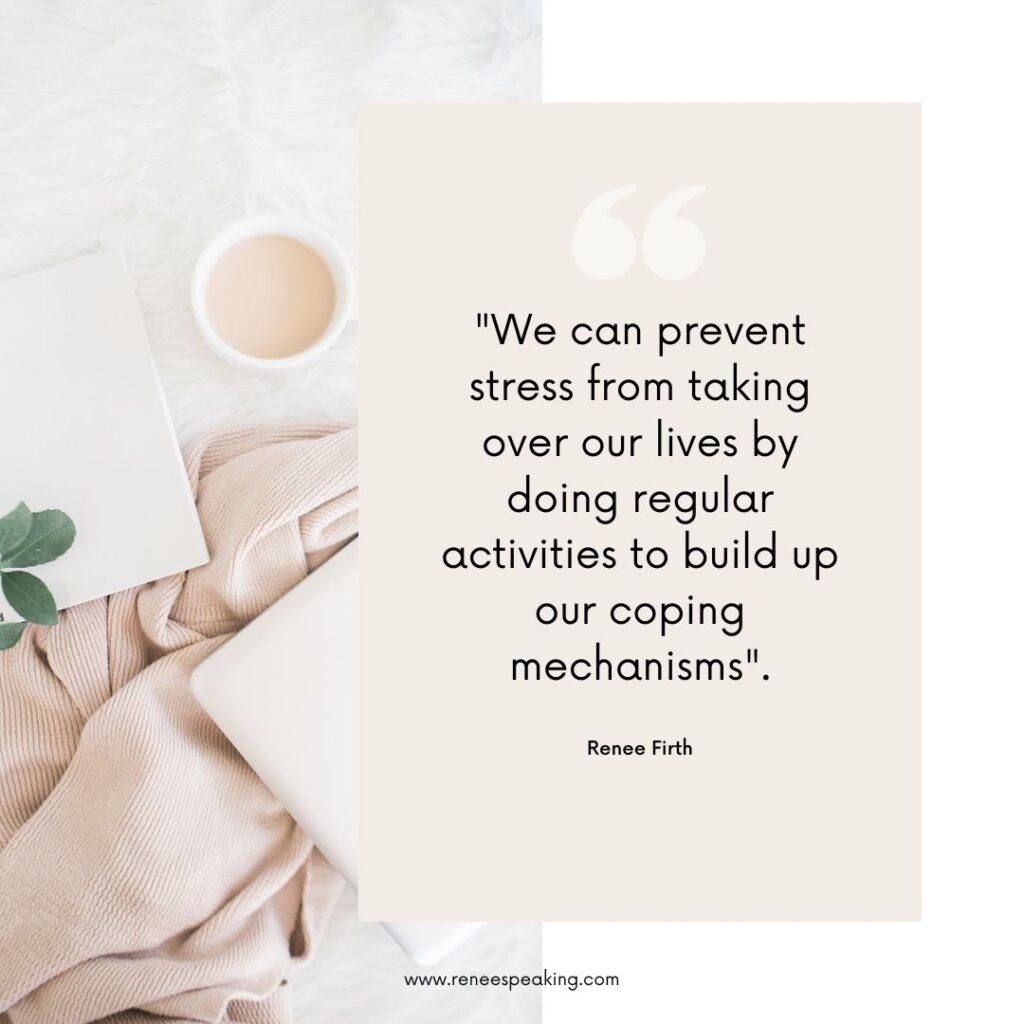
We can also prevent stress from taking over our lives by doing regular activities to build up our coping mechanisms for unexpected stress. Calming activities such as getting a massage once a week, spending time with friends, or having a designated “date night” with your partner are great ways to prevent lousy stress from escalating.
Everyone’s copying mechanism to handle stress will be different. If you need to know what works for you, experiment and try something new or go through this list of healthy examples and find one you like:
- Go for a 10-minute walk – Going for a walk boosts endorphins and other cardiovascular types of exercise. The endorphins that are released can aid in alleviating mild depression.
- Call a friend – Calling a friend to chat about the stress will allow a pathway where the pressure can be released from our bodies. Often friends have more significant insights into what is causing us stress and can see things from an objective point of view. Even if the friend does not provide advice, just having them listen to us helps us feel comforted and not alone.
- Meet with a counselor – Counselors often use cognitive behavioral therapy to treat stress effectively. The technique can assist in changing the negative thought patterns that we may have due to the pressure. A counselor can help us find new ways to think about stressful events and challenge our negative thought patterns.
- Take up a new hobby – Doing something you enjoy provides a break from our minds because we have to focus on something completely unrelated to what is causing the stress.
- Watch a funny movie – Laughter provides a workout for our muscles and releases endorphins. Any film that makes us giggle will help reduce stress. It is fine even if you are unhappy at the time because our bodies can not tell the difference between real and fake laughter. So any laughter is great medicine!

- Find a quiet place to read a book – Reading can be a great way to escape stress. When reading, we allow ourselves into another imaginary world that can distract us from daily stress.
- Listen to some music – Calming music before we go to bed helps us feel at peace and is a great relaxation tool that can induce sleep.
- Have sex – Sexual activity in a committed, healthy, and loving relationship reduces stress due to the surge of oxytocin that occurs with orgasm. Orgasms lower blood pressure levels, especially among women.

Not all stress is bad. Sometimes pressure can improve our lives and motivate us. Other times, stress can be harmful and can cause depression and anxiety. Having a short-term and long-term stress plan is always a good idea. Whatever way you choose to reduce stress, ensure that you enjoy it. It will keep you healthy and well. After all, you never know what tomorrow may bring!


5 responses to “Good Stress vs. Bad Stress: What’s the Difference and What Should You Do About It?”
[…] ? Good Stress vs. Bad Stress: What’s the Difference and What Should You Do About It? […]
[…] Related Post: Good Stress vs. Bad Stress: What You Need To Know […]
[…] 11 Self-Care Ideas For Boosting Your Mental Health Can Being A Stay At Home Parent Cause Depression? Good Stress vs. Bad Stress: What’s the Difference and What Should You Do About It? […]
[…] Good Stress vs. Bad Stress: What’s the Difference and What Should You Do About It? […]
[…] Discovering PTSD Symptoms: An Overview of Post-Traumatic Stress Disorder Can Being A Stay At Home Parent Cause Depression? Good Stress vs. Bad Stress: What’s the Difference and What Should You Do About It? […]